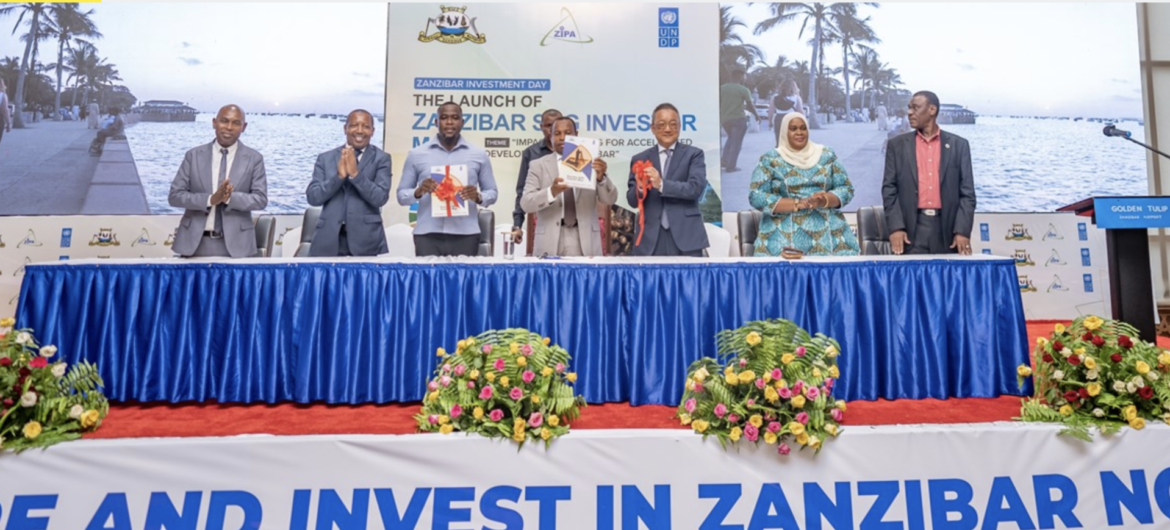Tanzania has recently secured a significant financial boost from UK Export Finance (UKEF) to fund crucial infrastructure projects on the island of Zanzibar, marking a pivotal moment in the country’s development efforts. This substantial support, amounting to a staggering 422 million euros, is set to revolutionize the archipelago’s infrastructure, with a particular focus on modernizing key areas that are essential for economic growth and improved connectivity. The magnitude of this financial backing not only demonstrates the UK’s commitment to fostering development in Tanzania but also opens up lucrative opportunities for British construction firms, with potential contracts valued at over 100 million pounds sterling.
The financial package, meticulously negotiated and signed with Tanzania’s Ministry of Finance and Planning, is a testament to the strong diplomatic and economic ties between the two nations. This comprehensive funding arrangement is ingeniously structured into two distinct instruments, each tailored to address specific infrastructural needs on the island. The primary focus of these ambitious projects is twofold: firstly, to undertake a extensive modernization of the airport facilities, and secondly, to significantly enhance the road infrastructure across Zanzibar. These initiatives are poised to have far-reaching impacts on the island’s economy, tourism sector, and overall quality of life for its residents.
One of the cornerstone agreements within this financial package is a substantial 180 million euro contract, facilitated through Citi bank, which is earmarked for the expansion and modernization of Pemba Airport. Pemba, being the smaller of Zanzibar’s two airports, has long been in need of upgrades to meet growing demand and international standards. This transformative project aims to dramatically increase the airport’s passenger capacity and, crucially, enable it to accommodate international flights, a development that could be a game-changer for the island’s tourism industry.
The scope of work is comprehensive and includes several major components: the extension of the runway to accommodate larger aircraft, the construction of new terminal buildings to enhance passenger experience and processing capabilities, and the development of additional critical infrastructure such as a state-of-the-art control tower. These improvements are particularly significant given that currently, only the Abeid Amani Karume International Airport, located on the main island of Unguja, has the capability to handle large aircraft and international flights.
The second major component of the UKEF support comes in the form of a 242 million euro agreement, orchestrated through Deutsche Bank. This substantial investment is dedicated to a wide-ranging improvement of Zanzibar’s road infrastructure, encompassing a total of 103 kilometers of roadways across the islands of Pemba and Unguja. The objectives of this extensive road development project are twofold: to alleviate the increasingly problematic traffic congestion that has been hampering mobility and economic activity, and to foster better connectivity between and within the islands, which is crucial for both economic development and social cohesion.
This agreement, mirroring the structure of the Citi bank deal, is cleverly arranged as a combination of loans from Deutsche Bank, secured by UKEF’s buyer credit guarantee, complemented by direct loans from UKEF itself. This financial structure not only provides the necessary capital but also mitigates risks, making the project more feasible and attractive to all parties involved.
The significance of these infrastructure developments cannot be overstated, as emphasized by Nigel Huddleston, the UK Minister for International Trade. In his statement, Huddleston underscored the critical role that robust local infrastructure plays in encouraging businesses to invest and engage with local suppliers.
He pointed out that this comprehensive agreement will support fundamental development across the entirety of Zanzibar, potentially transforming the archipelago’s economic landscape. Moreover, Huddleston highlighted the reciprocal benefits of this arrangement, noting that it will create new and exciting opportunities for British companies to expand their presence and operations in Africa. This aspect of the deal aligns perfectly with the UK’s broader strategy of fostering mutually beneficial international trade relationships, particularly in emerging markets with high growth potential.
